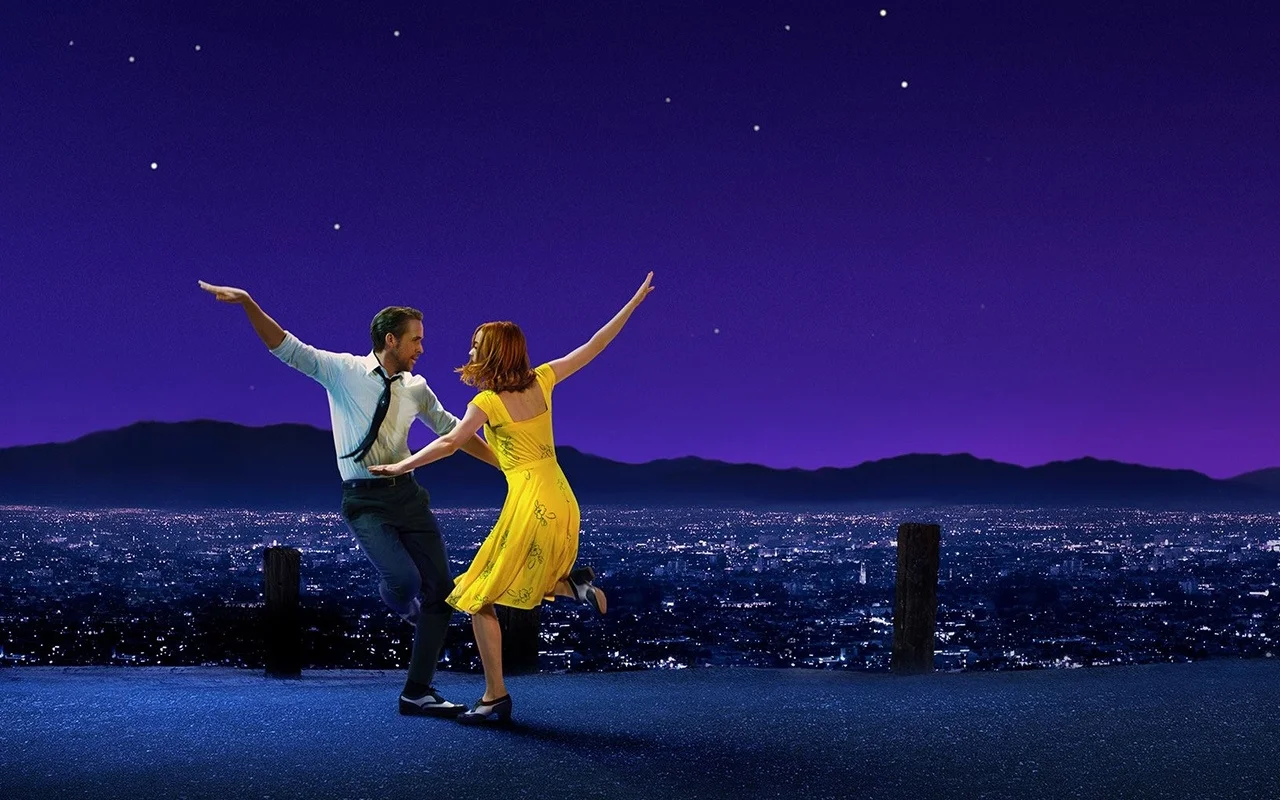LaLa Land directed by Damien Chazelle. Image courtesy of Lionsgate.
LaLa Land will probably go down in history more for the Oscar cock-up than anything else. It got a lot of nominations and a lot of buzz, but at the end of the day was derailed by a film that may or may not have been superior but was definitely more relevant. We cannot discount that contemporary social and political currents served, in some degree, to push back against LaLa Land's all-white celebration of jazz music and Hollywood’s WASP-y past, and that helped get Moonlight over the hump. There were definitely undercurrents of resentment bubbling up as it steamrolled toward the Oscars, and with the wake from last year’s @oscarssowhite still looming in the background, LaLa Land’s shot at a historic Oscar run was torpedoed.
Was it better than Moonlight and more deserving of Best Picture? I thought both films were merely good, but not great. If anything, the fact that these two films were the ones jockeying for Best Picture just hints at what a lacklustre year 2016 was for cinema (my personal choice, Nocturnal Animals, was never even a real contender, as the Academy tends to be turned off when you open your film with a montage of obese naked women gyrating in slow-motion). So I don’t have a strong opinion one way or the other. In the end, it’s all so much sound and fury, signifying nothing.
What I do feel strongly, is that LaLa Land was definitely a good - but not exceptional - film. Damien Chazelle is pure talent, but truth be told, Whiplash was better. And it didn’t win Best Picture. I think a lot of people were sold on the novelty of the musical format – the big show-stopping opening scene, the quiet and soulful Emma Stone solo, the tear-jerker finale that basically tells everyone that we should abandon love in pursuit of our ambitions (a theme Chazelle is particularly enamoured with). The retro style – think, especially, of the scene after the party where Emma Stone and Ryan Gosling do a Fred and Ginger impression while the fading light of LA frames them in the background – is undoubtedly seductive, especially for nostalgia hounds eager to look back on a time when America was great and Hollywood was in the halcyon cocoon of its Golden Age.
But here’s the thing – while I love a good musical, and especially one that is steeped in the history and lore of Hollywood and pays homage to the past, that by itself is not enough. I was raised on a diet of Fred Astaire, so I know what the musical is in its most flawless form. I’ve dined on the big MGM spectacles of the 1950s and 60s, the event show-stoppers meant to dazzle in their Technicolor glory. Just because you love musicals, and you make one that lovingly conveys a deep appreciation for and knowledge of its predecessors, that is not enough for me to crown you A Great (Musical) Film.
As a musical, the film works reasonably well but suffers a bit from the constraints of the format. The actors can’t really dance that well, nor can they sing particularly well. The sequence in the pool at the Hollywood party is definitely good fun, as far as razzle-dazzle goes, and the movie exudes heart at every turn, but for whatever reason it just didn’t seem to add anything new to or transcend the form that it lovingly celebrates. In fact, you could remove the musical elements and the film would still work because its main lifeblood is the chemistry between Emma Stone and Ryan Gosling. These are two great actors with great chemistry, and it makes you root for them and get invested in their relationship which is one of the hardest things for a Hollywood film to do successfully. The individual components are all good - some are even terrific - but when added up they are not greater than the sum of their parts which prevents the film from attaining truly classic status for me. This is no knock on Chazelle. If Martin Scorsese's New York, New York taught us anything it is that melding naturalistic acting with spectacle-heavy musical numbers is a balance that is damn near impossible to get right.
Then there is the film's message of raw ambition and talent trumping the romantic and personal ties that hold us back. I have no problem with this message, but I do think it was conveyed with far more precision and impact in Whiplash. In many ways, LaLa Land is just Whiplash with a bigger budget and more lavish musical numbers. It baits us with the seductive allure of a Big Hollywood Romance dressed up in nostalgia and musical numbers, and finishes it off with a foray into alternate timelines where we are teased with the ghost of happiness, only to come back to a world of moody lighting and broken dreams. Again, this is all really well-executed. But it doesn't hold a candle to Whiplash or Top Hat or The Barkleys of Broadway. And when you can't improve on or top the previous film you made - except for doing everything bigger, brighter and louder the second time - than I think we should hold off on anointing it a tried and true classic of cinema.
